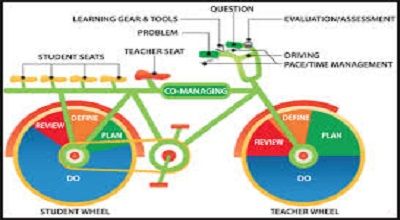Project-Based Learning Unit
Creating a Project-Based Learning (PBL) unit on “Life as a Young Teen” can be a highly engaging and informative experience for students. This unit will help students explore various aspects of being a young teenager, including physical and emotional changes, social dynamics, decision-making, and personal development. Here’s a step-by-step guide to designing this PBL unit:
Unit Title: Life as a Young Teen
Grade Level: Middle School (6th-8th grade)
Duration: 4-6 weeks
Essential Question: What does it mean to be a young teenager, and how can we navigate this stage of life successfully?
Project Overview:
Students will investigate and present on various aspects of life as a young teenager, culminating in a comprehensive understanding of the challenges and opportunities this stage of life offers. They will explore topics such as physical and emotional changes, relationships, decision-making, and personal growth.
Introduction to Adolescence – Week 1
- Kick off the unit with a discussion on what it means to be a young teenager.
- Introduce the essential question and the project.
- Assign groups and establish group norms.
Physical Changes and Health – Week 2-3
- Explore the physical changes that occur during adolescence, including puberty.
- Discuss the importance of a healthy lifestyle (nutrition, exercise, sleep).
- Each group selects a physical change topic (e.g., growth spurts, acne) to research and present.
Emotional and Social Changes – Week 4-5
- Examine the emotional and social challenges of being a young teenager.
- Discuss peer pressure, self-esteem, and emotional well-being.
- Assign groups to research and present on topics like bullying, self-confidence, or friendship.
Decision-Making and Problem-Solving – Week 6-7
- Introduce the concept of decision-making and its significance during adolescence.
- Explore real-life scenarios related to decision-making.
- Each group creates a decision-making framework or tool for young teens.
Personal Growth and Goal Setting – Week 8-9
- Discuss personal growth, setting goals, and self-improvement.
- Encourage students to reflect on their own goals and aspirations.
- Each group researches and presents the importance of goal-setting for young teenagers.
Relationships and Communication – Week 10-11
- Explore the dynamics of friendships, family relationships, and communication.
- Discuss healthy vs. unhealthy relationships.
- Assign groups to create resources on effective communication or conflict resolution for young teens.
Project Presentations and Reflection – Week 12
- Each group presents their findings to the class.
- Facilitate a class discussion where students can share what they’ve learned.
- Have students reflect on their personal growth during the unit and set one achievable goal for the future.
Assessment:
- Group presentations and class participation.
- Individual reflection essays on personal growth.
- Peer evaluations for teamwork and collaboration.
- Rubrics for each project component.
Resources:
- Age-appropriate books, articles, and videos on adolescence.
- Guest speakers (e.g., school counselor, psychologist, or a young adult sharing their experiences).
- Interactive activities and role-playing exercises.
Extensions:
- Field trips to a local community center or youth organization.
- Invite parents or guardians to a panel discussion on parenting young teenagers.
- Create a digital portfolio showcasing their learning journey throughout the unit.
Note:
This PBL unit on “Life as a Young Teen” not only provides students with valuable information but also encourages self-reflection and empowers them to make informed decisions during this critical stage of development.
